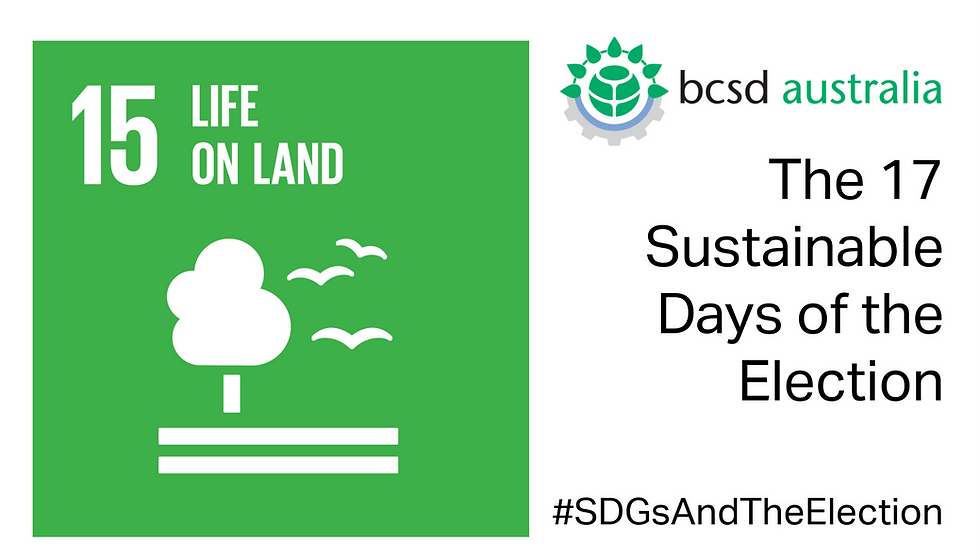SDG8: The 17 Sustainable Days of the Election
- BCSD Australia
- May 8, 2019
- 2 min read
Updated: May 27, 2019
Through the lens of the UN Sustainable Development Goals (SDGs), over the 17 days leading up to the Australia’s national election we will be highlighting the challenge for an inclusive and sustainable Australia, what can be done to address the challenge and what BCSD Australia, as part of a global WBCSD network is doing to create impact.
On Day 8, we are looking at SDG8: Decent work and economic growth

Our nation’s apparent economic resilience is demonstrated by the 28-year period of growth since the last recession — a period which included the global financial crisis. ABS data for 2018 shows Australia recorded a A$22.2 billion trade surplus, the highest ever for a calendar year. We’re ranked third in the world on the UN’s Human Development Index, which reflects very high levels of well-being among most Australians.
However, Australia's AAA credit rating (reflecting our international credibility to investors) remains at risk from our reliance on foreign capital for investment (mostly borrowed). Many Australians have to contend with record low wages growth, while others remain less than fully employed. Participation of women, especially young women, in the workforce is lower in Australia than in other OECD countries. Since 2000, real disposable income per capita has grown by 29%, but there has been no increase over the last five years. For those workers with low skill levels, the opportunities to retrain throughout their working lives are limited.
Our country’s economic prosperity and resilience is valuable only when it is shared sufficiently across a community to support social cohesiveness and quality of life. So the real question is not whether or even when a recession will come, but how well positioned we will be to respond?
Australia's economic resilience will be strengthened by the following:
The enacting of economic reforms and any measures to safeguard prosperity - including reducing inefficiencies in the tax and transfer system, supporting competition in markets, and improving workforce participation among women and older people would make the biggest difference to the economic outcomes of all Australians.
Secure and realise the value of trade agreements, such as the agreement with the European Union, sooner rather than later and bolster regional partnerships with the ASEAN bloc and India as a hedge against tensions between the United States and China.
Conduct a ‘root and branch’ trade review and seek to engage the Australian people on better ways to involve them in trade negotiations.
Undertake a review and reform of the the employment services network.
Encourage higher female labour force participation.
Continue the development of the National Environmental Economic Accounts to improve progressively, through 2030, national resource efficiency in consumption and production and endeavour to decouple economic growth from environmental degradation.
What is BCSD Australia doing to create impact to address this challenge?
We are working with a number of partner organisations on projects that will help to address this challenge here in Australia and around the world, including:
Follow us on Twitter and LinkedIn to see our latest posts on #SDGsAndTheElection each day.




Comentários